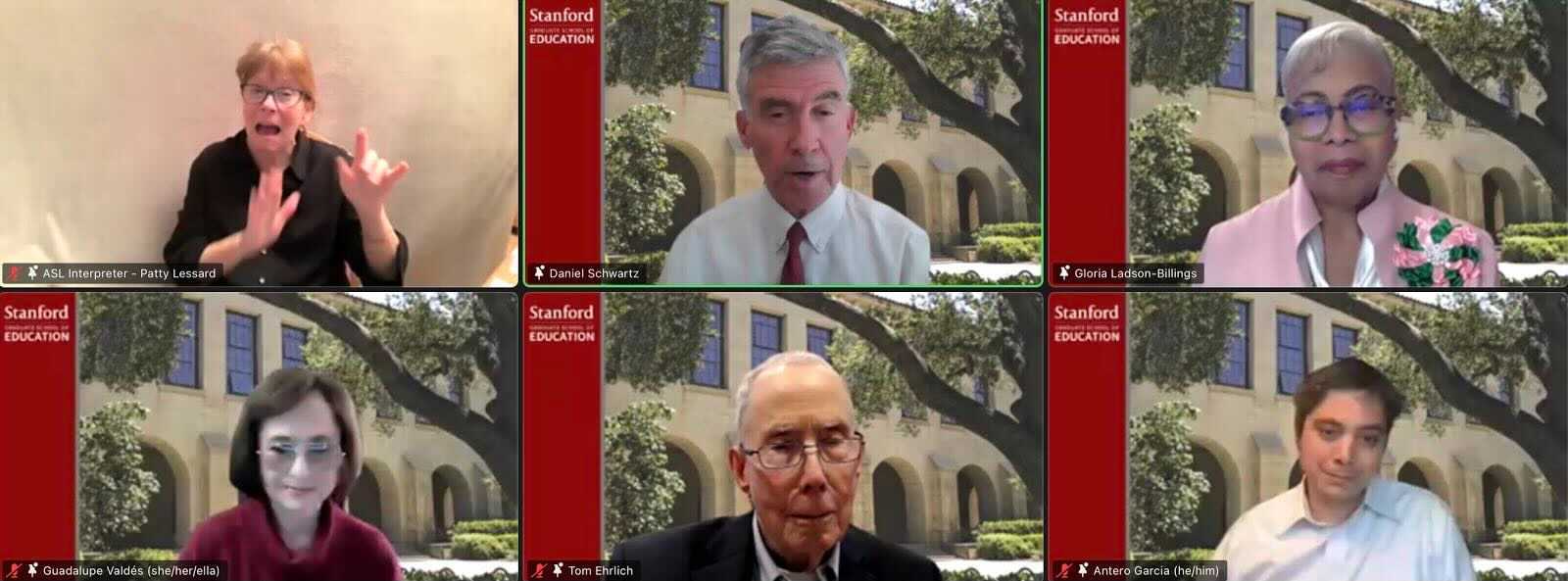Civic education plays a critical role in preserving and perpetuating American democracy, said National Academy of Education President Gloria Ladson-Billings Ph.D. ’84 at the Graduate School of Education’s (GSE) 2021 Cubberley Lecture.
“The perspective I share is about schools as a place to develop democrats — small ‘d’ — and to develop citizens,” the scholar and activist said.
A series of annual talks held since 1938, the Cubberley Lectures center around issues of critical concern in education and have previously featured high-profile speakers such as Jill Biden and Bill Nye. This year, four experts on pedagogy gathered to discuss the role of civic education in preserving American democracy, with Ladson-Billings giving a presentation, followed by a short discussion with the other three experts.
Titled “A republic if you can keep it,” Ladson-Billings’ presentation centered around the rights the Founding Fathers bestowed upon Americans in their texts while also keeping a focus on current crises and movements, such as the Black Lives Matter protests, and what the everyday American can do to ensure equity among everyone through different forms of civic engagement.
To be properly educated in civic engagement, young adults should understand prevailing “individual values, group values and social values” as well as the current state of America, Ladson-Billings said. She said American society is facing four pandemics: COVID-19, systemic racism “that traverses the globe,” an imminent economic collapse and an environmental catastrophe.
Not all people face these problems equally, she added. While all Americans are “going through the same storm,” they are not in the same boat: Some are on “luxury lines” while others “are holding onto a piece of driftwood.”
But despite the “gloom and doom,” Ladson-Billings has hope for America’s future.
“Historically, pandemics have forced humans to break with the past and imagine their world anew,” she said. She added that discourse regarding civic education should strive to create a portal through which people can choose to walk through “ready to imagine another world.”
Ladson-Billings and her colleagues are optimistic for highly increased levels of civic engagement among young people.
GSE adjunct professor and former Stanford Law School Dean Thomas Ehrlich said that after the 2016 election, “millions of college students are being prepared to be politically engaged.”
He hopes that with this increased engagement and attention, instructors can better enhance students’ political understandings, refine political analysis skills and exemplify the relevance of specific political issues in everyday life.
GSE assistant professor Antero Garcia added that the key to successfully approaching civics education is to make it relatable to students. For example, instead of conducting a traditional class on the three branches of government, he explained that learning should start as “a simple dialogue and a conversation.”
Garcia also said he wants students to engage in local politics and ensure they know their voices are critical to the country’s future.
“I say let’s start with building off of the ingenuity and expertise of young people,” Garcia said.
Teachers have a responsibility to “help students clarify what they think and believe, and why they think that way,” Ladson-Billings said. She added that teachers should be willing to challenge students’ beliefs, but should not actively dissuade them from thinking one way or the other.
She stressed that there should not be a push for a singular viewpoint within a classroom, because democratic representative government stands on the foundation of common reason founding between disagreeing factions.
“A republic requires us to sit sometimes with very uncomfortable information,” Ladson-Billings said.
